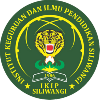TEACHING READING NARRATIVE TEXT USING STELLER THROUGH SIGNAL GROUP
DOI:
https://doi.org/10.22460/project.v5i6.p1150-1155Abstract
The purpose of this study was to understand the scenario and implementation of learning to read Narrative Text. using Steller through Signal Group, to find out teacher and student responses, as well as teacher and student barriers to the implementation of teaching scenarios during online learning during the covid pandemic. This research uses a qualitative descriptive method. The participants in this study were students of class X in one of the Vocational Schools in Cimahi and an English teacher. The instruments in this study were questionnaires, observation sheets, teacher field notes, and tests. Based on research in the field, data obtained that the scenario and implementation of the teaching scenario went well and also received positive responses from both students and teachers. The difficulty experienced by most students is understanding the purpose of the text and looking for references. Another obstacle faced by teachers was technical problems with the Steller application, while student barriers were prerequisite skills 61.33%, time/interruption 70%, motivation 71.7%, technical 76.8% and social 83.7% which showed that all the obstacles faced by most of the students are not too annoying but the unstable internet connection and storage space of the device. Thus, the writers conclude that the use of Steller in this study can help the implementation of learning to write Narrative Text. In addition, teachers can also create appropriate learning media on the Steller teacher story page, especially for teaching reading Narrative Text. However, the teacher must estimate the obstacles that may occur during the activity, especially for technical problems that may occur.
Â
Keywords:Â Reading, Narrative Text,, Steller, Signal Group
Â
References
Anugrahana, A. (2020). Hambatan, solusi dan harapan: pembelajaran daring selama masa pandemi covid-19 oleh guru sekolah dasar. Scholaria: Jurnal Pendidikan Dan Kebudayaan, 10(3), 282-289.
Ayu, R. M. R. (2022). The Correlation Between Students’imagination and Their Writing Skill in Narrative Text at The First Semester of The Third Grade of SMA Muhammadiyah 1 Way Jepara Lampung Timur in The Academic Year of 2021/2022 (Doctoral Dissertation, Uin Raden Intan Lampung).
Bal, M. (2018). Reading and writing experiences of middle school students in the digital age: Wattpad sample. International Journal of Education and Literacy Studies, 6(2), 89-100.
Barwick, J. (1998). Targeting Text: Photocopiable Units Based on English Text Types: Narrative, Poetry, Drama: Middle Primary. Blake Education.
Brown, H. D. (2000). Teaching by Principles: An Interactive Approach to Language Pedagogy by H. Douglas.
Daheri, M., Juliana, J., Deriwanto, D., & Amda, A. D. (2020). Efektifitas whatsapp sebagai media belajar daring. Jurnal basicedu, 4(4), 775-783.
Dhawan, S. (2020). Online learning: A panacea in the time of COVID-19 crisis. Journal of educational technology systems, 49(1), 5-22.
Hanifah, F. M., & Bharati, D. A. L. (2019, July). The comparison between Wattpad and blog in project based learning to teach written analytical exposition text. In ELT Forum: Journal of English Language Teaching (Vol. 8, No. 1, pp. 109-119).
Harmer, J. (1998). How to teach English: An introduction to the practice of English language teaching. Edinburgh Gate, Harlow, England: Addison Wesley Longman. Hyland, K. Writing and teaching writing.
Iskandar, R. (2020). Penggunaan grup whatsapp sebagai media pembelajaran terhadap peserta didik dta at-tawakal kota bandung. Comm-Edu (Community Education Journal), 3(2), 97-101.
Ismail, H., Syahruzah, J. K., & Basuki, B. (2017). Improving The Students’ Reading Skill Through Translation Method. Journal of English Education, 2(2), 124-131.
Kasper, M., Uibu, K., & Mikk, J. (2018). Language teaching strategies’ impact on third-grade students’ reading outcomes and reading interest. International Electronic Journal of Elementary Education, 10(5), 601-610.
Kholifah, N. (2019). Pendekatan Ilmiah (Scientific Approach) Dalam Pembelajaran Pendidikan Agama Islam Dan Budi Pekerti Kurikulum 2013: Studi Analisis Berdasarkan Paradigma Positivistik. CENDEKIA: Jurnal Studi Keislaman, 5(1), 1-23.
Nasution, R. F. (2018). Reading strategies used by successful readers of english Department Students of State Institute for Islamic Studies Padangsidimpuan (Doctoral dissertation, IAIN Padangsidimpuan).
Pendidikan, K. (2013). Kebudayaan. 2013. Peraturan menteri pendidikan dan kebudayaan republik indonesia nomor, 65.











